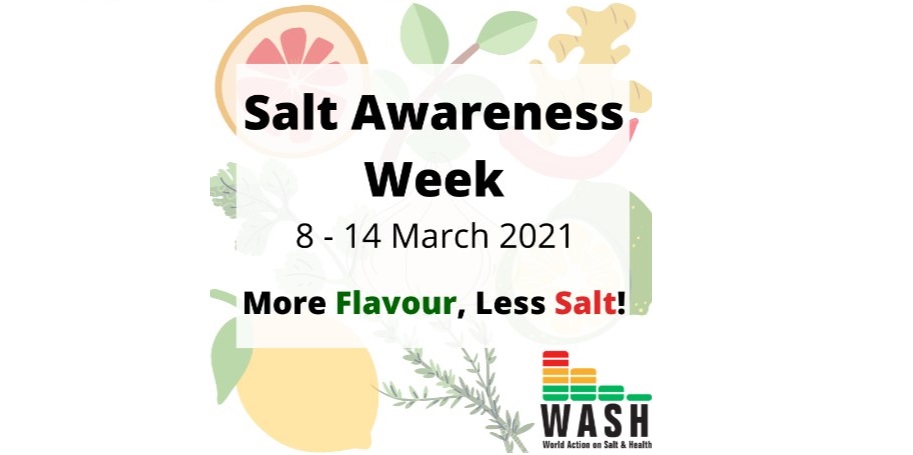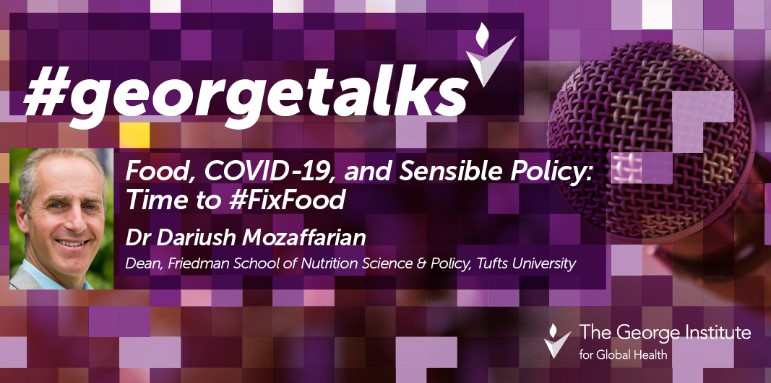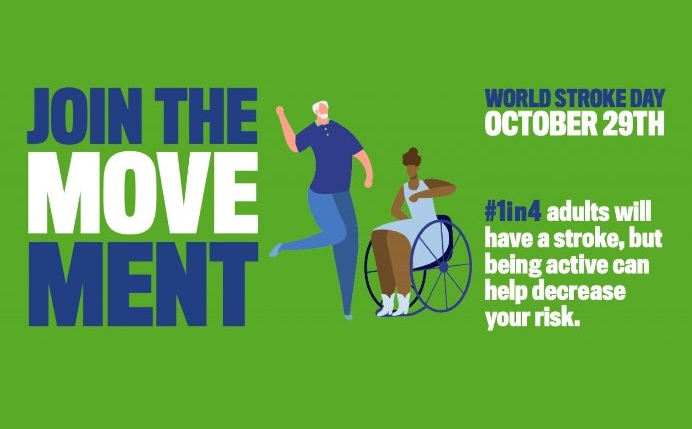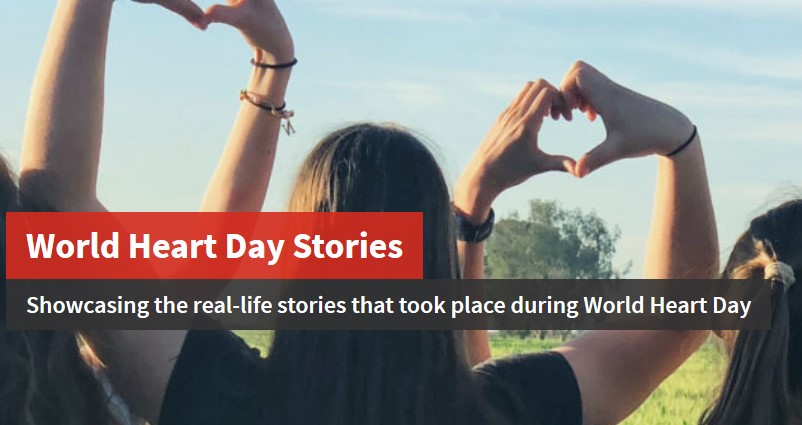Strategies for Reducing Salt and Sugar Intakes in Individuals at Increased Cardiometabolic Risk

Published in Nutrients on the 13th of January 2021, Ponzo et al conducted a narrative review to describe current knowledge about the strategies to reduce dietary salt and sugar intake, including strategies for the food industry and for health professionals in a clinical context. A search of electronic peer-reviewed databases was conducted. Themes reviewed for […]
From Salt to Stroke – Evaluation of a Media Campaign for Sodium Reduction in Philadelphia

Published in Frontiers in Public Health on the 15th of January 2021, Klassen et al used a repeated cross-sectional design to evaluate the process and impact of a media campaign for sodium reduction in Philadelphia, USA. Between 2014 and 2015 the Philadelphia Department of Public Health conducted an education campaign, targeting populations at higher risk […]
World Salt Awareness Week 8-14 March 2021 – Spread the message: More Flavour, Less Salt!

World Salt Awareness Week (WSAW) is taking place between the 8 – 14th of March and this year the theme is “More Flavour, Less Salt!” Led by World Action on Salt, Sugar and Health, this year’s theme aims to reflect the fact that many people are eating and cooking more at home given COVID-19 related […]
#GeorgeTalks on “Salt wars: using policy and the law to reduce salt intake”

The George Institute for Global Health invites you to a #GeorgeTalks on “Salt wars: using policy and the law to reduce salt intake” on Wednesday 10 March 2021 at 12pm (AEDT) to mark ‘World Salt Awareness Week’. For this #GeorgeTalks event, we will be joined by Dr. Michael F. Jacobson, Senior Scientist and former […]
Culinary Medicine Education may help achieve salt intake reduction

Published in Nutrients on 26 November 2020, Razavi et al reviewed opportunities for culinary medicine to improve outcomes of individual- and population-level sodium-reduction outcomes. “Culinary medicine is an emerging discipline in clinical and public-health education that provides healthcare professionals and community members with food-based knowledge and skills”. Five key areas were reviewed: (1) increasing adherence […]
Effectiveness of the Victorian Salt Reduction Partnership’s media advocacy activities

Published in the Nutrition Journal on 16 September 2020, Rosewarne et al evaluated the Victorian Salt Reduction Partnership’s media advocacy activities by determining the extent to which activities contributed to the overall strategy aims and the effectiveness of the activities in gaining media and industry engagement. Guided by Stead et al’s framework for evaluating media […]
Identifying sodium intake using dietary behaviours

Published in PLoS One on 15 September 2020, Okada and Takimoto conducted a cross-sectional analysis to develop a brief screening method for determining sodium intake in order to raise public awareness of Dietary Reference Intakes in Japan. Self-administered questionnaires from one-day dietary records by a semi-weighed method within the 2015 National Health and Nutrition Survey […]
Food, COVID-19 and Sensible Policy: Time to #FixFood

To celebrate World Food Day on the 16th of October, The George Institute hosted a discussion with Professor Dariush Mozaffarian of the Tufts Friedman School of Nutrition Science and Policy. Prof Mozaffarian provided a background on the burden of disease due to poor diets, the steps that can be taken to fix diets and food […]
World Stroke Day on 29 October 2020

One in four people will have a stroke in their lifetime. This year’s World Stroke Day focused on the top 10 lifestyle changes to prevent stroke including controlling high blood pressure, eating a healthy, balanced diet and maintaining a healthy weight. The World Stroke Organization encouraged individuals to “join the movement” and share dance moves […]
World Heart Day 2020: ‘Share your stories’ campaign by World Heart Federation

On the 29th of September 2020, World Heart Day saw the world become filled with messages of heart-healthy lifestyle change ideas. These messages have reached millions of people around the world thanks to the ‘Share your stories’ campaign initiated by the World Heart Federation. To ‘Use Heart’ by sharing your World Heart Day story with […]